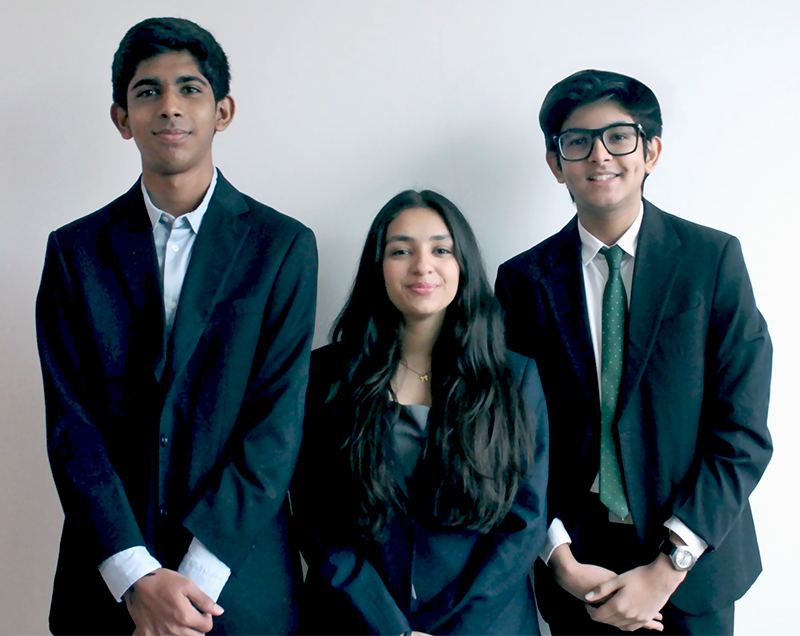
President of the SC : Nysa Kandhari
Deputy Presidents of the SC : Aarav Doshi, Manish Ganeshan
“The world will not be destroyed by those who do evil, but by those who watch them without doing anything.”
- Albert Einstein
Dear Delegates and MUN Directors,
In an era defined by cascading crises—where armed conflicts, economic instability, cyber warfare, and climate insecurity converge—the Security Council stands as the frontline of multilateral crisis management. The DAIMUN 2025 theme, Polycrisis: Navigating a New Global Order, is not abstract here—it is lived in every motion.
Delegates in the Security Council will be thrust into the eye of geopolitical storms, where diplomacy must outpace destruction. With P5 dynamics at play and real-time global stakes, the agendas set this year demand sharp political insight, a mastery of procedure, and a relentless pursuit of diplomacy under fire.
Our first agenda is "Addressing the Indo-Pak conflict with specific reference to Kashmir," which remains a critical challenge for regional and global stability. Since the partition of 1947, Kashmir has been the epicenter of multiple wars and ongoing hostilities between India and Pakistan, both of whom claim the region in full but govern it in part. The presence of armed groups, frequent cross-border skirmishes, and political unrest have intensified tensions, contributing to a prolonged humanitarian and security crisis. Efforts must prioritize diplomatic engagement, adherence to international law, and the protection of human rights to foster a peaceful resolution.
The second agenda is “Addressing the escalation of Houthi Attacks against Red Sea Shipping.” The Security Council will deliberate on the topic—an escalation that has destabilized the world’s busiest maritime corridors. Despite UNSC Resolution 2768, the threat continues, disrupting global trade and aid. Delegates will confront the legal, operational, and strategic challenges posed by non-state actors in international waters, to safeguard maritime security and reassert order.
The third agenda is "Addressing the Resurgence of Military Coups and Democratic Backsliding in West Africa." The revival of military coups in West Africa since 2020 has presented a serious threat to regional stability, democratic governance, and global peace. Nations like Mali, Burkina Faso, Niger, and Guinea have undergone unlawful military coups, leading to halted constitutions, curtailed civil rights, and exit from international peacekeeping and governance systems. These incidents have led to increasing insecurity, diminished regional collaboration, and the strengthening of armed non-state groups in the Sahel. The creation of alternative military coalitions and the dismissal of ECOWAS and global mediation jeopardize years of diplomatic and developmental achievements. The Security Council needs to act firmly to maintain democratic principles, deter cross-border conflicts, and protect the rule of law in an area that is increasingly susceptible to political division and extremist growth.
Over the course of the three-day committee, delegates will participate in dynamic debates and strategic negotiations, reflecting the core values of democratic decision-making in pursuit of consensus and impactful resolutions that reinforce international peace and security.
With the aim of resolving these pressing issues, fostering collaboration, and facilitating meaningful discussions, we welcome you to the Security Council at the 21st edition of DAIMUN and wish you the very best for the conference!
Warm Regards,
Nysa Kandhari,
President of the Security Council,
Aarav Doshi and Manish Ganeshan
Deputy Presidents of the Security Council,
DAIMUN 2025